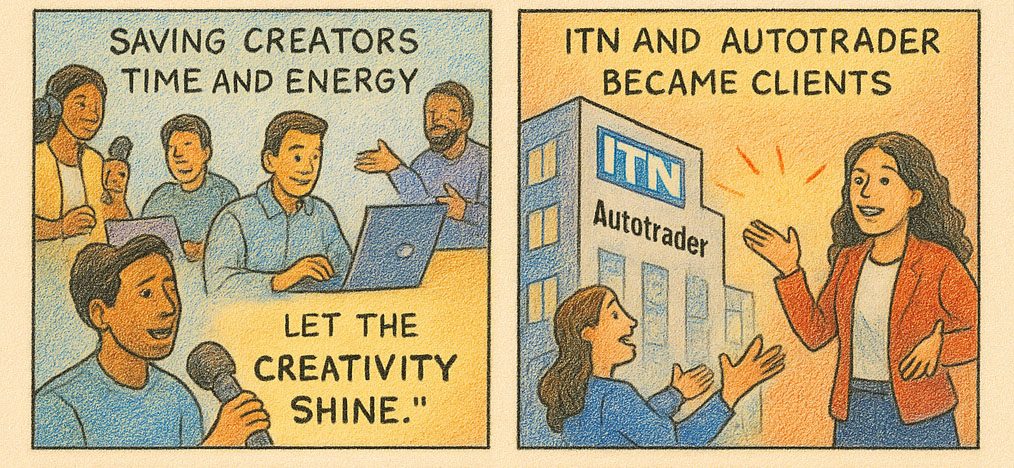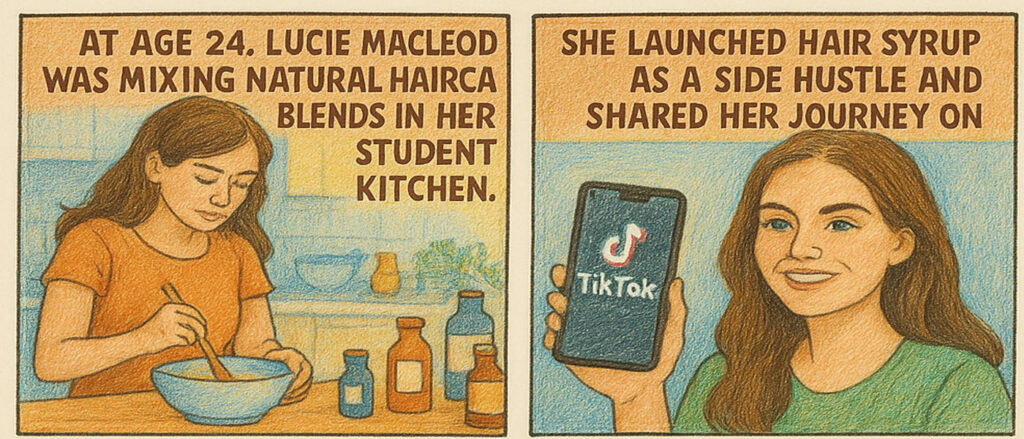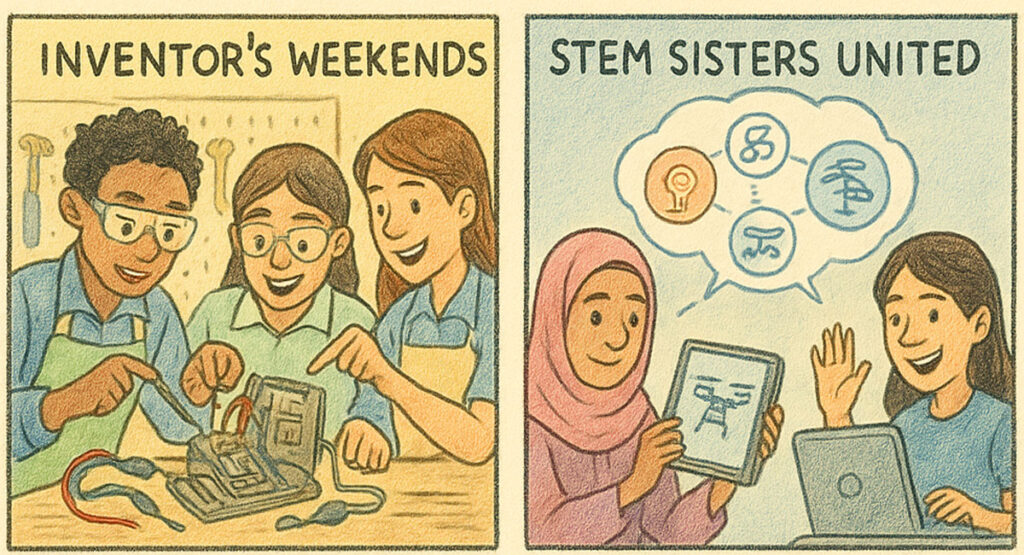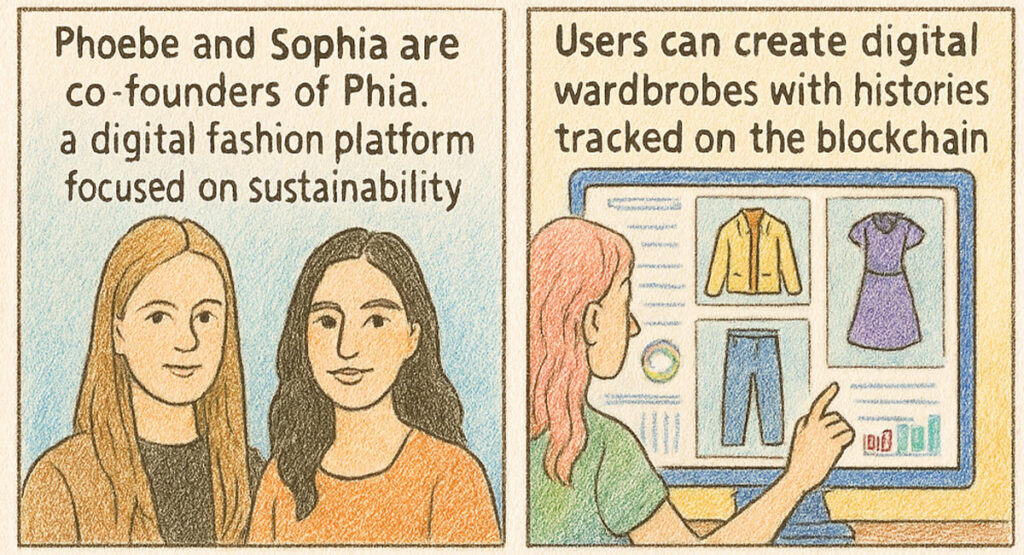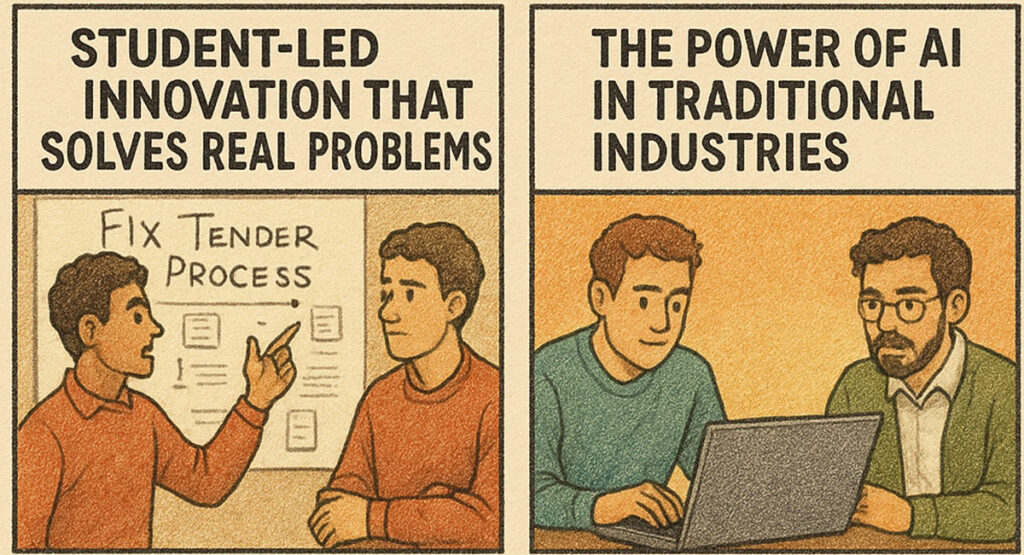Zara Paul and Aaron Morris, both bright minds from Durham University, met not just as classmates but as two individuals bonded by a shared vision—to make content creation more seamless for the modern world. Their journey from lecture halls to leading a transformative tech startup is a tale of innovation fueled by frustration, curiosity, and a relentless pursuit to solve a problem they knew all too well.
It all began in their university days, where Zara, an avid podcaster, often found herself battling clunky video editing tools that weren’t designed for the kind of content she was creating. Meanwhile, Aaron, a computer science enthusiast with a sharp eye for user experience, had his own frustrations with existing software that demanded too much time, too many steps, and too little satisfaction. One late evening, over coffee and chaos, the idea was born—what if editing was smart, fast, and built for people like us?
That idea became Choppity.
Built from their small apartment turned coding lab, Choppity wasn’t just another editing tool. It was a platform born from the real-life needs of creators—especially podcasters, marketers, educators, and businesses that work with long-form video content and need short-form results. Instead of spending hours cutting and stitching audio and video manually, Choppity introduced intelligent tools that could identify speakers, highlight moments of interest, and create clean, polished video clips ready for sharing in minutes.
But they didn’t stop at functionality. Zara and Aaron understood the value of simplicity. The user interface had to be so intuitive that even someone who had never edited a video before could publish content within their first 10 minutes on the platform. It had to feel like magic, not a manual. Their motto was clear: “Make the technology invisible. Let the creativity shine.”
What started as a bootstrapped project gained traction fast. Word of mouth spread among podcasters and small businesses, and soon, Choppity caught the attention of major clients like ITN and Autotrader—proof that their solution was solving problems far beyond the student creator scene. These brands weren’t just impressed by the tech; they were impressed by the vision behind it.
Zara brought her storytelling magic into every demo and pitch, showing companies how Choppity could help them scale content without scaling effort. Aaron, ever the builder, kept refining the backend, adding AI-powered transcription, social media export templates, and real-time collaboration tools. Together, they made a formidable team—creativity and code, passion and precision.
Their company culture reflected the duo’s philosophy: no fluff, no fear, just bold ideas and big execution. They didn’t want to be a typical SaaS startup; they wanted to be the backstage pass for every creator struggling with time, tools, and tech overwhelm.
Choppity became more than just a business. It became a symbol of what happens when you refuse to accept the status quo. It stood for accessible tech, for creators who didn’t want to waste their energy on things machines should already be doing. It stood for that fearless student energy—believing you can build something big even if you’re starting small.
Zara and Aaron, now recognized as rising stars in the UK tech scene, continue to push the boundaries of what content editing should feel like. With a growing team, new features powered by machine learning, and expansion plans into global markets, they are on a mission to make video editing as easy as talking.
Their story is a reminder: you don’t need decades of experience or millions in funding to build something meaningful. All you need is a problem worth solving, a partner who shares your fire, and the courage to create.
Choppity is not just a tool—it’s a revolution in content creation. And Zara Paul and Aaron Morris are its fearless architects.
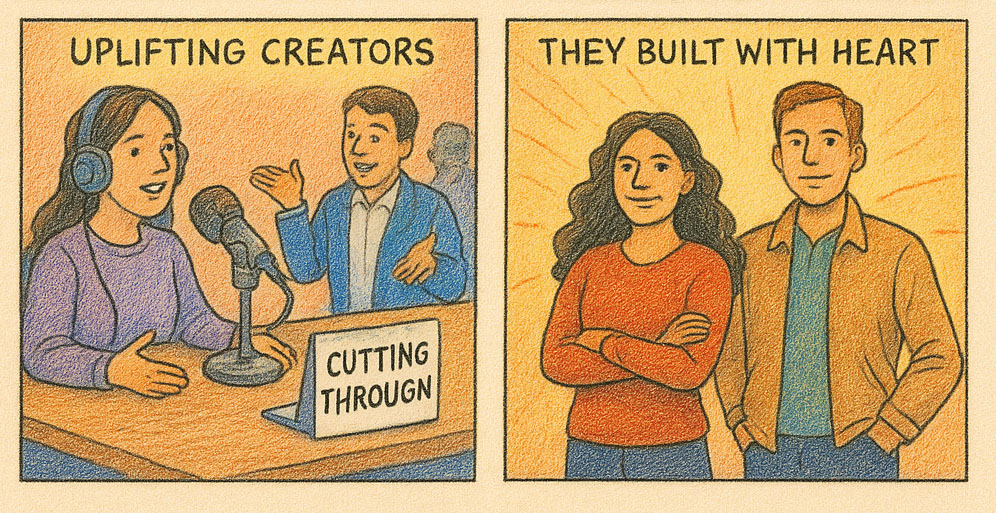
Zara and Aaron’s journey with Choppity is just the beginning of a broader mission—one that stretches far beyond software.
They’ve become passionate advocates for creative independence in a world where content rules everything. They regularly speak to young entrepreneurs and university students, reminding them that you don’t have to wait for experience to earn your voice. Your ideas, your intuition, and your hunger are already enough to begin.
One of their most exciting projects under development is Choppity Studio, an in-browser AI workspace that automatically selects the best 30-second clips from an hour-long podcast. This isn’t about flashy tech—it’s about saving creators time, freeing them to focus on connection, message, and art. With this feature, Choppity is not just a tool, but a partner in creativity.
Zara has also led the launch of Choppity for Nonprofits, offering discounted access and personalized onboarding to mission-driven organizations. She believes that powerful storytelling shouldn’t be limited by budget, and that NGOs, mental health groups, and educators have some of the world’s most important stories to tell.
Aaron, on the other hand, has been building Choppity Labs, an internal team dedicated to experimenting with new tech like voice cloning for re-recording small podcast edits, and instant translation tools for multilingual captioning. His dream? That a video made in one language can be understood in every corner of the world without losing the speaker’s original tone or energy.
They also introduced a “Creator First” affiliate program, flipping the typical marketing model. Instead of throwing money at ads, they give revenue shares directly to creators who use and love the product. They’re building an ecosystem, not just a client list. It’s grassroots, it’s bold, and it’s working.
Their startup office, nicknamed “The Choppity Den”, is filled with sketches, soundboards, and team lunch brainstorms. Every wall is painted with words like “fast is kind,” “launch, then learn,” and “serve the creators.” These aren’t quotes—they’re the principles that built the company from scratch.
Zara has also launched a podcast called “Cutting Through”, where she interviews creators, freelancers, and startup founders about the behind-the-scenes messiness of making things. It’s raw, honest, and motivating, and it shows that even in the chaos, there’s clarity if you keep building.
What makes their story so resonant is that they didn’t build Choppity because they wanted to get rich. They built it because they were tired of wasting time, tired of not being heard, and tired of tools that weren’t made for real people. They simply decided to build what they wished existed.
They’re now planning a Choppity Camp, a creative residency where 20 creators from around the world come together for one week to collaborate, build, and learn from each other—all expenses paid by Choppity. It’s about giving back, uplifting the next wave, and staying true to their roots as young dreamers trying to fix something broken.
Zara and Aaron’s story reminds us: when innovation is built on empathy, when you serve real needs, and when you build with heart, success isn’t just possible—it’s inevitable.
